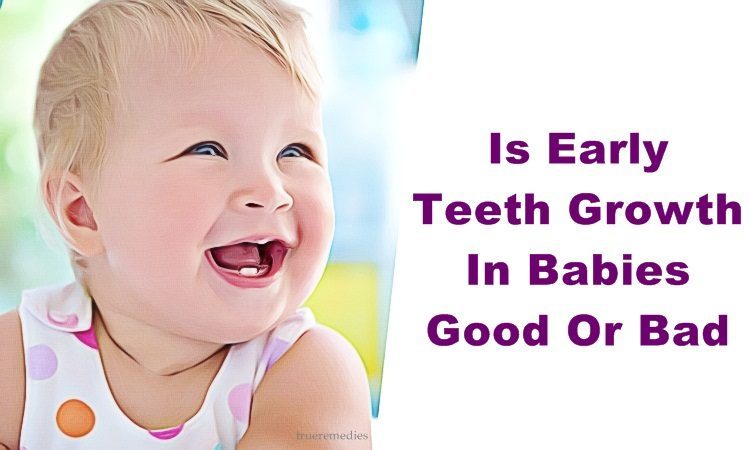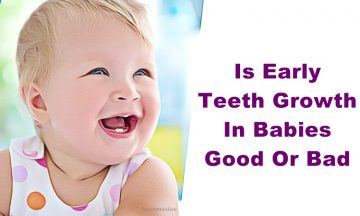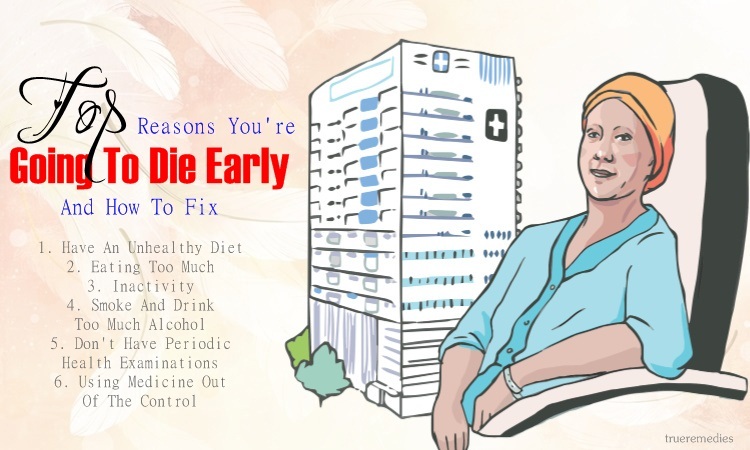Contents
Parents always care about any baby development periods, including teeth growth. Some children grow teeth at the right time; others experience early teeth growth while some parents wait too long for their baby to have his or her first teeth. Is early teeth growth in babies good or bad? What are the possible signs? How can we do to take care of our child? Let’s find the useful information and make parenting less challenging with TrueRemedies.
- Chickenpox FAQs & Experts’ Answers For Parents
- Is It Safe For Newborns To Drink Water?
- 14 Silent Signs Of Eating Disorders In Children 12 And Under
- Top 9 Useful Secrets To Be A Happier Mom (This article was medically reviewed/ fact checked by Dr. Robi Ludwig)
Is Early Teeth Growth In Babies Good Or Bad? What You Need To Know
I. Normal Teeth Growth
The time for teeth growth is different from child to child. On average, babies start to grow their teeth at around five or six months of age and finish their full set of 20 deciduous teeth by the age of three[1].
The following chart is the average baby teeth (also known as deciduous teeth or baby teeth) development.
| Jaw | Teeth | Eruption time |
| Upper Jaw | Central incisor | 8 to 12 months |
| Lateral incisor | 9 to 13 months | |
| Canine | 16 to 22 months | |
| First molar | 13 to 19 months | |
| Second molar | 25 to 33 months | |
| Lower Jaw | Second molar | 23 to 31 months |
| First molar | 14 to 18 months | |
| Canine | `7 to 23 months | |
| Lateral incisor | 10 to 16 months | |
| Central incisor | 6 to 10 months |
As you can see from the chart, the two bottom central incisors (also called bottom front teeth) break through the gums first, and then the top four front teeth appear. After that, other teeth begin to erupt slowly until your baby has the full set.
II. Factors That Impact On Baby Teeth Growth
However, not all children follow the same teeth growth and shedding. Early teeth growth can fall into the first three months or four months while some babies have to wait until nine months of age or even more than one years old to see the primary teeth emerging.
These following factors will impact on baby teeth growth:
TrueRemedies Partner Solutions

Need a Help from the Leading Expert Online, Available 24/7?
They’re all here and ready to answer your questions online or by phone. Keep asking questions until you get the answer you need.
- Genetics: Family’s genes can influence teeth eruption time in babies. If one of the family members like mom, dad or relatives has a history of early teeth growth, the child can grow teeth earlier than other babies.
- Nutrient: It is also one of the critical factors that determine the time of baby growth teeth. If the baby has a balanced and nutritional absorption, his or her first teeth are less likely to emerge from the gums late.
- Vitamin D and calcium: Calcium and vitamin D deficiency also increases the chance of tooth delay or late teething[2]. On the other hand, a full-term baby who is often exposed to sunlight can get enough vitamin D and calcium need and grow teeth at the right time or earlier, compared with other newborns.
III. Is Early Teeth Growth In Babies Good Or Bad
Most parents usually ask the questions “Is early teeth growth in babies good or bad for their development?”.
According to experts and doctors, late teething or early teeth growth in babies can be caused by several reasons, but nothing is related to the baby’s health. Also, it doesn’t affect your child’s development.
Therefore, if you see your child’s primary teeth grow before six months of age, there is no need to worry. Instead, you need to know how to take care of your baby and baby’s nutritional demands during this period to make sure that baby teeth are strong and healthy without deformation.
Keep in mind that the weaning in children with early teeth growth will be earlier than other babies.
IV. Signs Of Early Teeth Growth In Babies
The signs showing the first teeth rise through the gums vary from baby to baby. However, here are the common signs[3].
- Chew on their hands: When the first teeth come out, it causes discomfort. Therefore, babies often bite their fingers and hands to find relief.
- Bite everything surrounding or on their hands: We often catch five or six-month-old baby take something and put it into their mouth to bite and chew.
- Drooling: Most babies during teething have this sign because teething stimulates the flow of excess saliva in the baby’s mouth.
- Feel tired, cry too much, suffer from discomfort and be aggressive: Teething causes not only discomfort but also a pain in babies. Their gums are itchy and swelling. Pain for the first teething is challenging to deal with; therefore, babies often cry too much at this time. When other teeth begin to emerge, babies will get familiar with that experience and feel less painful.
- Afraid of breastfeeding: Gum swelling and pain will make babies more alert and fearful of anything put in their mouth, including mom’s nipple.
- Awake in the middle of the night: Swelling, pain and itchiness keep babies from sleeping well.
- Skip meals and lose weight: Teething babies experience the difficulty in eating and chewing. Therefore, they start to lose weight[4].
- Swelling gums and a little tooth breaking through the gums: You need to look at your baby’s gums and find out the sign.
- Mild digestive disorders and diarrhea: This sign isn’t well-proven, but many mothers notice that their baby suffers from a mild digestive disorder such as diarrhea while teething[5]. However, keep in mind that diarrhea is caused not only by teething but also by something life-threatening. Therefore, if your baby is suffering from a severe problem, making an appointment with a doctor is a must.
- Fever: The baby’s immune system changes because of teething[6]. However, you should take your baby to a doctor if the problem is severe.
V. How To Take Care Of Babies With The First Growing Teeth
Teething causes a lot of discomfort and pain, which changes the baby’s habits and health. Fortunately, you can apply these following methods and give your baby a significant relief.
- Give baby soft things like fake nipples or teething ring to bite and chew
- If your child is sick, wipe his or her skin with a warm damp towel and let him or her drink more water
- Give your child the medication for relieving the sickness if the fever is up to 38.5 degrees. Consult an experienced doctor before. If needed, take your child to a hospital
- Wipe the drool around their mouths and gums with a clean cloth
- Don’t feed them with hot or cold foods. Instead, let them eat soft foods. Don’t forget to provide more calcium and vitamin D to their diet.
- Provide meals with various tastes to stimulate the baby appetite and help them eat more
- Limit sugar intake because the sugar will cause tooth decay
In conclusion, early teeth growth in babies doesn’t affect their healthy development. However, it is recommended taking your child to the doctor regularly to check other oral and dental health. We hope that you find useful information in this article. Any questions can be left in the comment section, and we will answer them as soon as we can. Thank you for reading.









